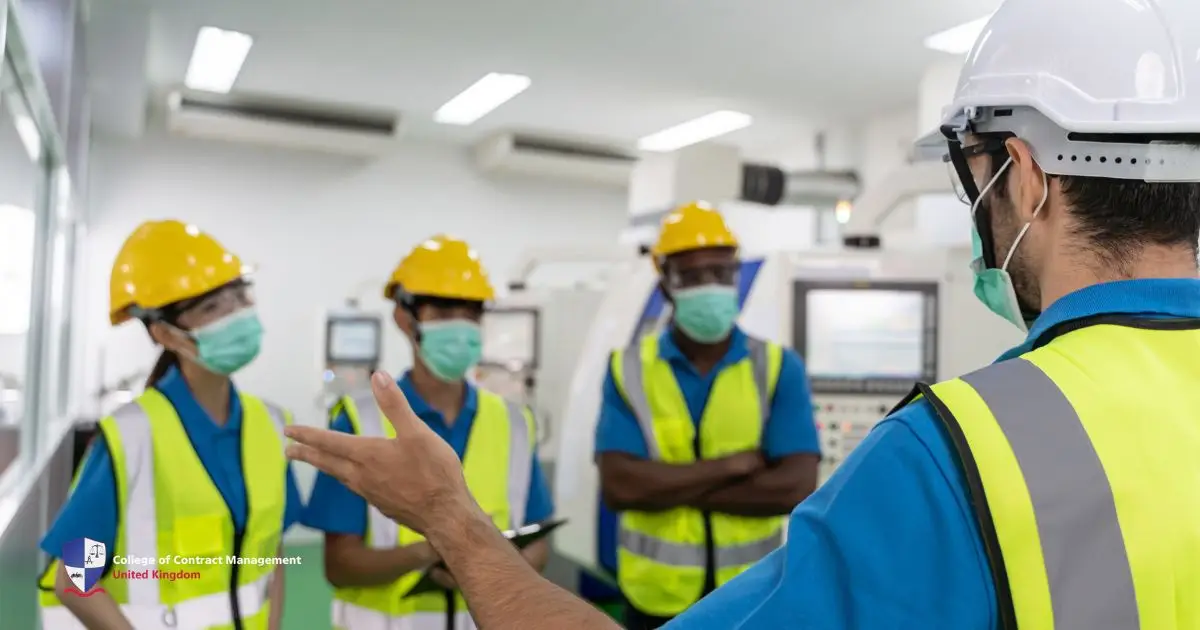Let us talk about why an insurance house is important in construction. There are many moving parts in any project, whether it is a hangar or a high-rise. Workers are present, and heavy tools are in use. There are too many chances for things to go wrong. As much as there are chances of causing injury to someone, other dangers include extreme weather and the risks of the project. They even protect you from the worst-case scenario of having to deal with legal issues. Here is when insurance comes in. It serves as a safety net to ensure the safety of all parties involved.
Keep in mind that not all insurance is the same. While constructing a building, a contractor cannot rely solely on general liability coverage. An 'insurance house' is a company that tailors coverage to meet the specific needs of the construction industry. It knows what makes construction so different from retail or even hospitality. Companies such as these can present insurance products that address certain risks within the industry. Working with such an insurance house as a contractor, engineer, or project manager brings assurance of having the right coverage.
What's an insurance house?
You can think of an insurance house as a "boutique" type of insurance company that deals with high-risk fields like construction. Unlike most insurers, these people keep a close eye on the construction industry. The building and contents insurance will cover all field risks from their knowledge. These may include design work and its flaws, accidents on building sites, and other risks that are unique to this line of work.
When you work with an insurance house, they’ll assess the specific risks for your project. For example, they’ll suggest coverage options for different stages of construction. They can also plan for claims you might not even think about. They provide coverage such as builder's risk, which protects against any physical damage to the project during construction. Finally, they work on professional liability and worker's compensation. In essence, they act as a safety net, ensuring that you won't bear the financial burden if something goes wrong.
Construction as a Unique and Capital-Heavy Business Risks
Working in construction has its own similarities with other professions. They have their unique risks to be on the lookout for and take precautions in case an unprecedented incident occurs. Fortunately, there are risks that an insurance house will never fail to address. To list a few of the risks they handle:
- Hazards Due to Physical Factors: Building sites are highly accident-prone; there are heavy tools in use, people working on high scaffolds, and many other tasks that pose safety risks.
- Weather and Climate Issues: Imagine a project that is in progress, and halfway through, a storm occurs, causing the entire site to be destroyed. Unplanned ground conditions call for additional support to hold the foundation.
- Commercial Risks: Losses incurred due to design errors or even project control failure are a few examples of events that may result in contractors, designers, and project managers' claims for aid.
If there's an accident or a delay, the insurance house helps cover the costs, allowing the project to continue moving forward. This not only reduces the risk of budget overruns and delays but also fosters trust among all stakeholders, including workers and investors, in the successful completion of the project.
The Practical Importance of Construction Insurance
To appreciate the value of an insurance house, let us look at a few cases from real life. The right type of construction insurance has helped building firms prevent extensive financial loss when accidents occur on-site. In situations where weather or supply constraints cause delays, it has also prevented some companies from suffering major budget deficits. And professional liability insurance has protected many firms from legal action over design errors.
The above instances show that getting the services of an insurance house is not solely a matter of compliance but rather the safeguarding of an investment, effective project management, and lastly, setting a positive rapport with clients and their partners.
Training for Construction Insurance at the College of Contract Management
Getting insurance in construction from an insurance house isn’t just about buying the right plans—it’s also about knowing how to assess risks and make sure you’re compliant with industry standards. The College of Contract Management provides training in construction insurance. The main purpose of these courses is to help you understand the clauses within agreements, assess the odds of successful completion of projects, and monitor the laws. This course may help you maintain the quality of your work.
Skills You Will Require for Risk Assessment and Compliance
Putting theory into practice and ensuring that risk management in construction exists requires a few key skills. Risk assessment entails the review of a given project to identify the risks of its work. You can study the following topics before making the decision to get insurance from an insurance house:
- The Insurance Requirement Study: The study aims to understand what types of coverage are needed for a certain project.
- Compliance Management: Making sure everything meets industry standards and contract obligations.
If you’ve got these skills, you’re in a much better position to make smart decisions about insurance and reduce the chances of costly mistakes.
Final Thoughts
An insurance house plays a crucial role in contract management by safeguarding against potential risks and fines that could halt projects. Making sure there is full coverage that fits the needs of the contract protects everyone and builds trust among investors. In addition to protecting your finances, an insurance company can help you understand complex deals. That way, you can follow them and avoid arguments as much as possible. Its active approach to risk management not only makes contract bonds stronger but also sets the stage for better project work and long-term business success.
Every construction project or contract requires some form of insurance from an insurance house. For instance, dealing with construction firms helps the management of the industry’s inherent risks, gets groups into contractual compliance, and aids in the quick progress of work. Should you want to know more, the College of Contract Management offers training that can enhance your insight into these issues. In the end, having coverage is crucial, not only for legal compliance but also to ensure worry-free construction work.





